The Peanuts Movie (2015)
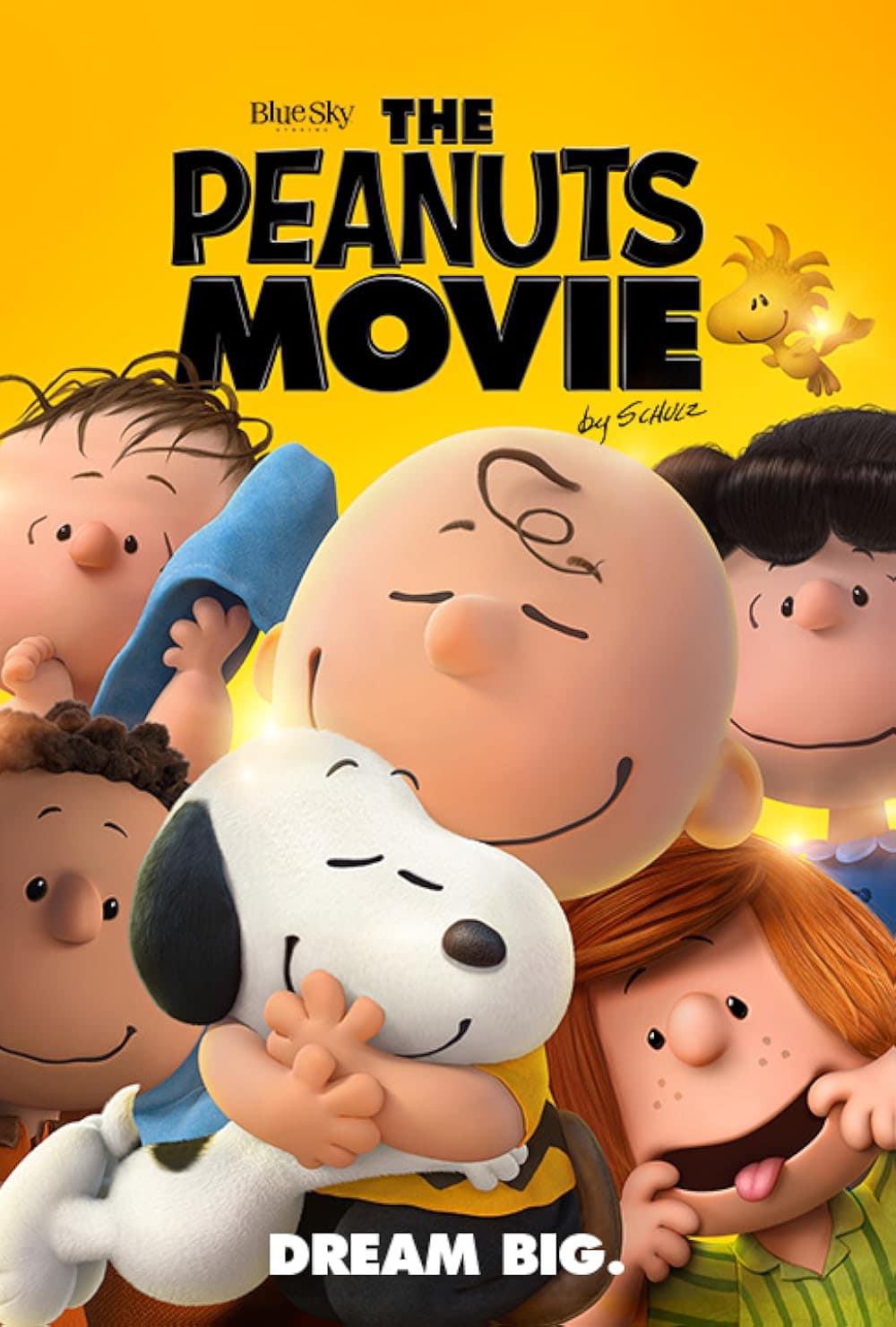
Released in 2015, The Peanuts Movie marks the return of Charles M. Schulz’s beloved characters to the big screen after decades of captivating audiences through comics, TV specials, and cultural legacy. Directed by Steve Martino and produced by Blue Sky Studios, this film is a heartfelt love letter to the world of Peanuts. With its faithful adaptation of the original material, stunning animation, and universal themes of perseverance and self-worth, The Peanuts Movie both delights longtime fans and introduces a new generation to the iconic gang.
Suggested videos for you:
Plot Overview
The story centers on Charlie Brown, the ever-hopeful underdog, as he grapples with his insecurities and strives to win the affection of the Little Red-Haired Girl, a new student in his class. Charlie’s journey is filled with well-intentioned but often comedic attempts at self-improvement—learning to dance, reading War and Peace for a book report, and even performing an ambitious magic trick. Despite repeated failures and his label as a “blockhead,” Charlie’s unwavering optimism and kind-hearted nature shine through.
Running parallel to this is Snoopy’s imaginative subplot. Snoopy, as the World War I Flying Ace, embarks on a daring adventure to rescue his love, Fifi, from the villainous Red Baron. This whimsical storyline offers a playful escape from Charlie’s grounded struggles and showcases Snoopy’s role as a comedic and heroic foil.
The dual narrative balances grounded emotional moments with lighthearted fantasy, ensuring the film stays engaging for all ages. It’s a story about resilience, kindness, and staying true to oneself, resonating with audiences young and old.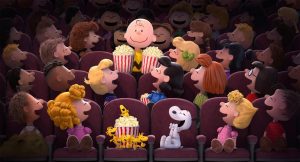
Faithfulness to the Source Material
One of The Peanuts Movie’s greatest achievements is its respect for Schulz’s original vision. The film retains the innocence, humor, and quiet charm of the comic strip while subtly modernizing it for a contemporary audience. The characters remain true to their personalities: Lucy is still bossy yet oddly endearing, Linus is wise beyond his years, and Snoopy continues to be the mischievous, imaginative dreamer.
The film is packed with Easter eggs and callbacks for fans, from the kite-eating tree to Lucy’s psychiatry booth. These moments pay homage to the comic strip’s legacy while seamlessly integrating them into the film’s narrative.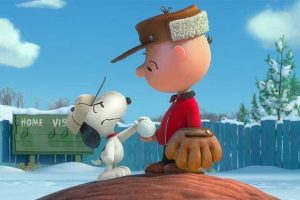
Characters and Performances
At the heart of the story is Charlie Brown, voiced with earnest sincerity by Noah Schnapp. Charlie embodies the universal fear of failure and the longing to be noticed, making him one of the most relatable protagonists in animation. His trials and tribulations—comedic and poignant—remind viewers that perseverance and kindness define true success.
Snoopy and Woodstock steal the show with their expressive, wordless performances. Using archival recordings of Bill Melendez for Snoopy and Woodstock’s voices, the filmmakers preserve their timeless charm. Meanwhile, the rest of the gang—Lucy, Linus, Sally, Peppermint Patty, and Schroeder—provide moments of humor and heart, contributing to the ensemble’s dynamic chemistry.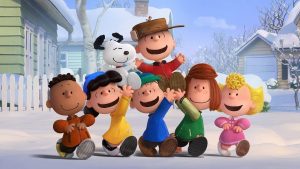
Animation and Visuals
Blue Sky Studios masterfully reimagines the Peanuts world through 3D animation, while staying faithful to the hand-drawn aesthetic of Schulz’s comics. The characters’ faces retain the simple, sketch-like expressions that defined the original strip, and the animators use careful timing and design to replicate the humor of Schulz’s minimalist style.
The use of 3D animation allows for richer environments, from snow-covered fields to Snoopy’s fantastical doghouse flights. The integration of 2D-like facial expressions into the 3D framework creates a hybrid style that feels nostalgic yet fresh. The attention to detail, from the texture of Snoopy’s fur to the vibrancy of the school and neighborhood, ensures that every frame is visually delightful.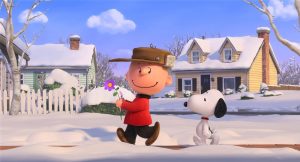
Music and Soundtrack
The music of The Peanuts Movie is a blend of nostalgia and modernity. Christophe Beck’s score draws inspiration from Vince Guaraldi’s iconic jazz compositions, incorporating familiar motifs that evoke the warmth of the original TV specials. Songs like “Linus and Lucy” make welcome appearances, bringing a sense of continuity with past Peanuts adaptations.
The inclusion of Meghan Trainor’s pop hit “Better When I’m Dancin’” adds a contemporary touch, appealing to younger viewers. While some purists might find this choice jarring, the song’s upbeat nature fits the film’s celebratory tone.
Themes and Messages
At its core, The Peanuts Movie is a story about self-acceptance, resilience, and the quiet strength of kindness. Charlie Brown’s journey emphasizes that true success is not about perfection or popularity but about integrity, compassion, and perseverance. Even when faced with setbacks, he remains kind, selfless, and determined—a lesson that resonates across generations.
Snoopy’s subplot, while more whimsical, parallels Charlie’s struggles in its themes of bravery and loyalty. Together, the two narratives reinforce the importance of dreaming big while staying true to oneself.
Criticisms
Despite its many strengths, The Peanuts Movie occasionally plays it too safe. Its adherence to the source material, while admirable, limits opportunities for deeper character exploration or bolder storytelling. Additionally, some viewers might find the inclusion of modern elements, such as pop music, slightly out of sync with the timeless tone of the original comics.
Legacy and Impact
The Peanuts Movie successfully reintroduces Schulz’s beloved characters to a new generation while honoring their legacy. It demonstrates that the charm, humor, and heart of Peanuts remain relevant in an era dominated by fast-paced, action-driven animated films. By focusing on the simplicity and sincerity that defined the original comic strip, the film stands out as a refreshing and heartfelt addition to the animated canon.
Conclusion
The Peanuts Movie is a triumph of adaptation, blending nostalgia with modern storytelling to create a film that feels timeless and fresh. Its heartfelt narrative, stunning animation, and universal themes of perseverance and kindness ensure its place as a worthy continuation of Charles M. Schulz’s legacy. Whether you’re a lifelong fan of Peanuts or discovering the gang for the first time, this movie is a delightful celebration of simplicity, sincerity, and the enduring power of optimism.











